Dismal Picture of Secondary Education: 37pc teachers rely on ‘guidebooks’
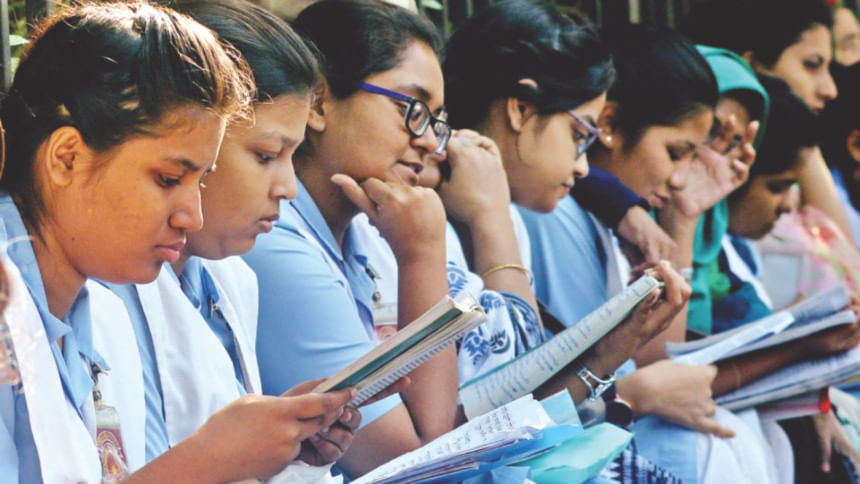
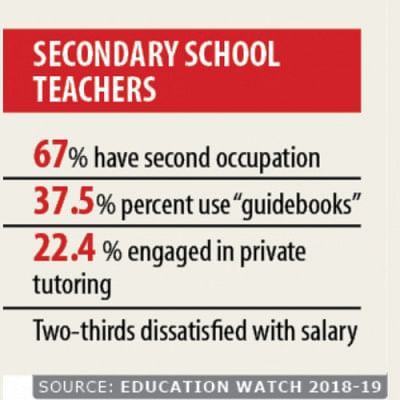
About 55 percent of English and mathematics teachers in secondary schools have not been specifically trained to teach the two key subjects. The lack of training is affecting their teaching methods and the quality of education.
Moreover, about 75 percent of physics teachers, 78 percent chemistry teachers and 64 percent general science teachers do not have the necessary training, according to the Education Watch Report 2018-19.
The report prepared by Campaign for Popular Education (CAMPE) also shows that 37.1 percent of the teachers use unauthorised “guidebooks” sold in the market.
“The lack of subject-specific training is definitely affecting the quality of education. At the secondary level, teachers are supposed to be experts on subjects they teach,” CAMPE Executive Director Rasheda K Choudhury told The Daily Star.
Teachers without subject-specific training usually fail to give proper instruction to students. If the teachers are bad at their jobs, the students get deprived of knowledge, said the eminent educationist.
SUBJECT-SPECIFIC TRAINING
The report, focusing on Secondary School Teachers in Bangladesh in the Light of SDG 4, shows that less than half the teachers of religion, accounting, Bangla, Bangladesh and global studies, biology, ICT, higher mathematics, geography, and history have subject-specific training.
“Many of these teachers resort to using [unauthorised] guidebooks to overcome their shortcomings,” Rasheda said.
The researchers interviewed 3,000 teachers from 600 government and private secondary educational institutions across the country.
“GUIDEBOOKS”
English and mathematics teachers use the so-called guidebooks sold in the market to teach students of every grade in the secondary level. Physics, chemistry and higher mathematics teachers use such books in grade IX and X classrooms, the survey found.
In all grades of the secondary institutes, 39 percent of English teachers, 33 mathematics teachers, 23 percent science teachers, 21.5 percent Bangla teachers, and 17.1 percent Bangladesh and global studies teachers use such books.
The rampant use of “guidebooks”, instead of the government provided textbooks, and private tutoring are major impediments to improving the quality of education, the report observes.
Some of the “guidebooks” contain questions that are likely to appear in exams. The answers are also given there. As a result, the students or teachers do not need to solve the problems. All they have to do is memorise.
The use of guidebooks undermines the textbooks and the teachers’ involvement in private tutoring affects their classroom teaching, the report says.
“As these teachers fail to properly teach students, the latter become dependent on guidebooks and look for private tutors,” said Rasheda.
PRIVATE TUITION
Although it is likely that some of the teachers may have not revealed the truth, 22.4 percent acknowledge that they are involved in private tutoring.
About 50 percent of the maths teachers are involved in private tutoring. They are followed by English teachers, 37.5 percent of whom are involved in private tutoring.
The teachers revealed that they do this to earn something that can compensate for their meagre pay, the report mentions.
Teachers, mostly from the private educational institutions, reported that their salary and benefits were not enough to run their families.
“Majority of the science teachers, including myself, are involved in private tutoring. I cannot maintain my family with the salary I draw from my school… I have to engage in private tutoring,” a chemistry teacher of a school in Sylhet was quoted by the report as saying.
SECOND JOB
As a second job, 23.3 percent of the teachers are into farming, 19.5 percent into household management, 11.3 percent into private tutoring, 4.4 percent into small and medium businesses, 2.8 percent into aquaculture and 5.7 percent into other occupations.
The average annual income of a teacher is Tk 2,59,601. It is Tk 5,37,804 for government teachers, Tk 2,86,034 for MPO enlisted teachers and 1,41,035 for non-MPO teachers, one of the researchers, Samir Ranjan Nath told this newspaper.
Only 29 percent of the teachers were satisfied with their salary.
The teachers said they taught more than three subjects. On an average, they teach for 16 hours and 10 minutes a week.
Question papers for exams are prepared through different means. Only 43.7 percent of the teachers said they themselves prepare the question papers.
The report says, 36.8 percent bought the question papers from different teachers’ associations, 14.4 percent from market, and 10.3 percent took the help of their colleagues.
There are 29,330 secondary level educational institutions with 358,907 teachers against 1,21,97,554 students across the country, said the report.
THE GOVERNMENT SAYS
Speaking at the report launching ceremony, Deputy Minister for Education Mohibul Hassan Chowdhoury said the report was an objective assessment of secondary education.
He said the government would improve the quality of education.
He added that the guidebook sellers were powerful businessmen who compel teachers to recommend the guidebooks to students. The teachers receive a cut from the sales.
“We need cooperation from all,” he said.

 For all latest news, follow The Daily Star's Google News channel.
For all latest news, follow The Daily Star's Google News channel. 

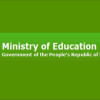
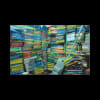


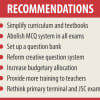


Comments